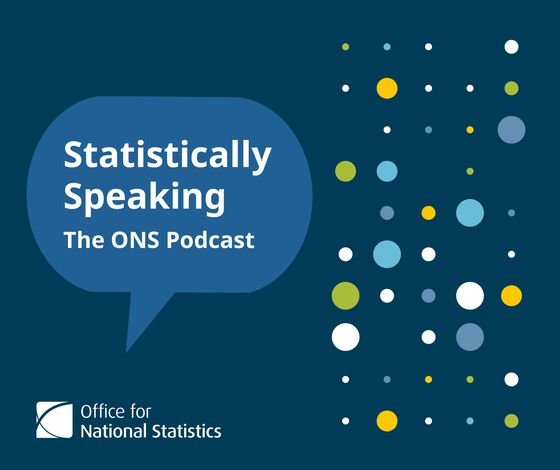News headlines this month proclaimed the UK has ‘narrowly avoided recession’. In the latest episode of Statistically Speaking, the Office for National Statistics podcast, we decode the ‘r’ word and explain why this sometimes misleading term is one the ONS is often cautious to avoid.
“A technical recession is widely regarded as two consecutive quarters of negative growth,” explains Darren Morgan, ONS Director of Economic Statistics. “You could get a -0.1% or +0.1% change, but how different really was the economy at that point in time? I would say it was broadly flat, but some people do get excited about it.”
Chief Economist, Grant Fitzner, adds: “I think journalists need something quick and simple to understand, and I guess this [technical recession] meets the bill. But I don’t think anyone would seriously call that a ‘recession’.
“The common sense understanding of a recession is a prolonged and significant downturn in economic activity. So not just one or two quarters, and not just a 0.1% change, but actually something a bit more substantial.”
Darren and Grant join podcast host Miles Fletcher to give listeners the full lowdown on GDP (Gross Domestic Product), including what’s involved, how it’s used, its history, and even some of its shortcomings.
“It’s been around since the Second World War,” says Miles. “But is its time as the yardstick for measuring the success or failure of the world’s economies now coming to an end?”
Liz McKeown, Director of Public Policy Analysis explains how the ONS is already looking well ‘Beyond GDP’ and introducing broader measures of social wellbeing and the environment to provide us with a more holistic view of how society is faring.
‘The ‘R’ Word’ is the twelfth episode of Statistically Speaking and is available to download here. It’s also available on Spotify, Apple podcasts, Amazon and all other major podcast platforms.
